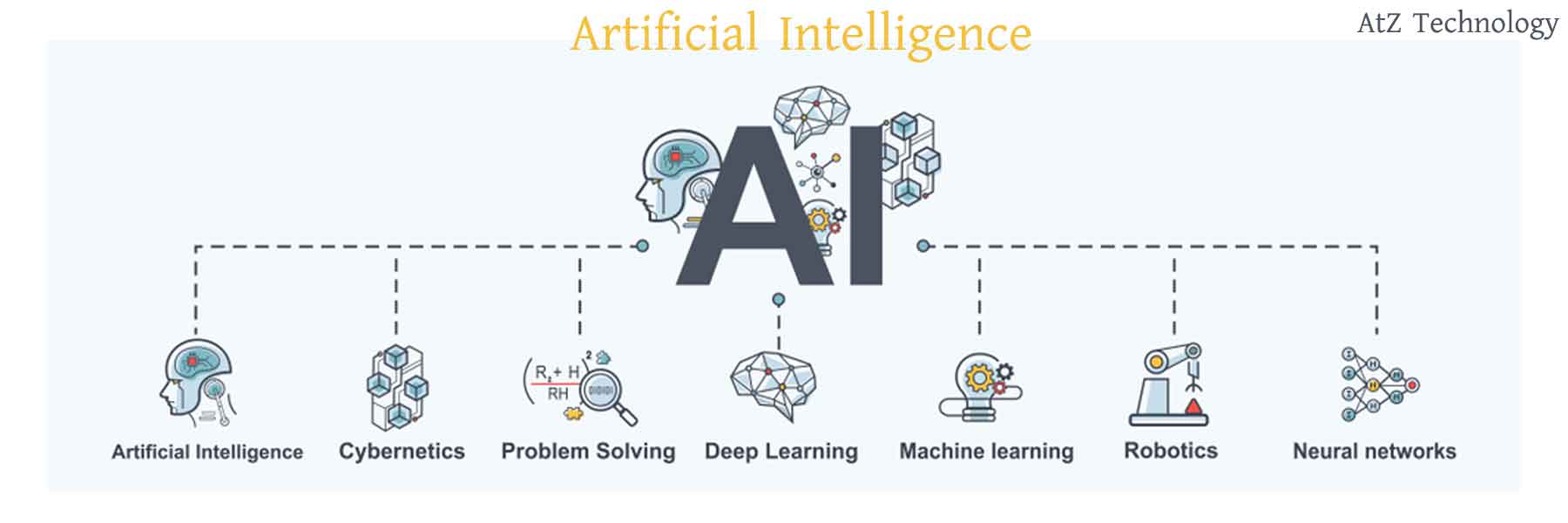Before describing Artificial intelligence, we need to know what Intelligence is. Human behavior is ascribed to intelligence. Psychologists generally do not characterize human intelligence by only one trait but by the combination of various diverse abilities.
Components of Intelligence
Research in AI has focused chiefly on the following components of intelligence and they are:
- Learning
- Reasoning
- Problem solving
- Perception
- Using language.
Artificial intelligence (AI) refers to the intellectual processes characteristics of human intelligence in machines. These are programmed in a way to think like humans and it may also be applied to any machine with a human mind in order to solve problems. The machines are processed like it can put an outcome like humans.
When most people hear the term artificial intelligence, the first thing that usually they think of is robots. But nothing could ever be further from the truth till now.
Artificial Intelligence History
The term artificial intelligence was first recognized in 1956, but it has become more popular than before nowadays and thanks to data volumes, advanced algorithms, and huge improvements in computing power and storage. Early AI research in the 1950s explored topics like problem solving methods. In the 1960s, the US Department of Defense took interest in these types of work and began training computers to mimic basic human reasoning.
Understanding Artificial Intelligence
Artificial intelligence is based on the principle that human intelligence can be described in a way that a machine can easily mimic it, from the most simple to those that are even more complex now. The goals of artificial intelligence (AI) include learning, reasoning, and perception as well.
AI is continuously evolving to benefit many different industries gradually. Machines are wired using a cross-disciplinary approach based on mathematics, computer science, linguistics, psychology, and medical science, and many more.
Applications of Artificial Intelligence
The applications for artificial intelligence are countless. The technology can be applied to hundreds of different sectors and industries. AI is being used in the healthcare industry for dosing drugs and various treatments in patients, and for surgical procedures in the operating room.
Other examples could be playing Ludo on the computer because, in the end, it intends to make anyone win. So, it is programmed that way and goes on. Artificial intelligence also has applications respectively in the financial industries, where it has been used to detect various activities in banking and finance such as unusual debit card usage and large account deposits, or any kind of savings.
Applications for AI are also being used to help trading easier. This is done by making supplies, demand, and pricing of securities which are easier to estimate.
Categorization of Artificial Intelligence
Artificial intelligence (AI) can be classified into two different categories. For example:
- Weak
- Strong.
Weak Artificial Intelligence
It is a system designed to carry out one particular job. Weak AI systems include video games such as the Ludo example from above and personal assistants such as Apple Siri. You ask the assistant a question, it answers it for you and normally the reply is sent for some specific questions.
Strong Artificial Intelligence
Systems that carry on the tasks considered to be human-like fully. These tend to be more complex systems. They are programmed to handle situations in which they may be required to problem solve without having interference of a person.
Special Considerations
Since its beginning, artificial intelligence has come under public scrutiny from scientists. One common theme is the idea that machines will become so highly developed that humans will not be able to keep up and they will be redesigning themselves at an exponential rate after a certain period of time. Another is that machines can hack into people's privacy and those are very much much critical to solving to some point.
Another contentious issue that many people have with artificial intelligence is how it may affect human employment very obvious chances. With many industries looking to automate their certain jobs through the use of different machinery, there is a concern that people would be pushed out of their workforce.
Conclusion
As everything has a good side and a bad. AI is also a part of that and it intends to have some negative impact in the near future. As long as it is not too late, we should think of a better outcome than machines should not fully win to take over the place of humans. It is a great help because it makes life easier but should not be in every way.




